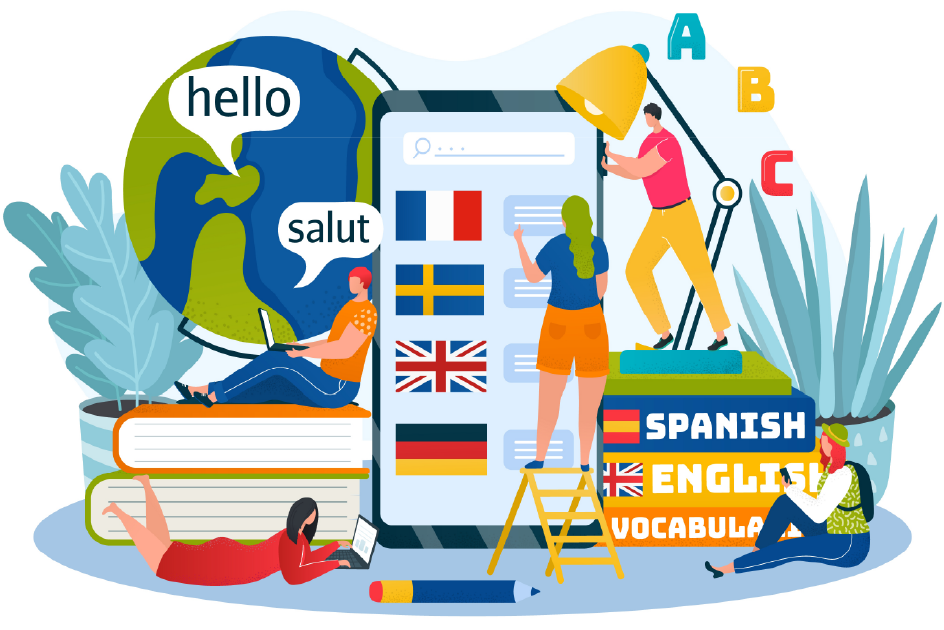If you’ve ever wondered why “luxury” sounds more appealing in French, why certain brand names get completely changed in international markets, or why a marketing slogan that worked in the U.S. flopped in China, the answer lies in the psychology of language.
Besides carrying meaning, words shape perception, influence emotions, and drive decision-making. Understanding how language affects consumer behaviour is crucial for brands operating globally. Through professional translation services and professional transcreation services, brands can effectively communicate their message to global audiences, taking into account linguistic, emotional, and cultural nuances.
Why Words Matter in Marketing
Think about the last time a brand’s slogan caught your attention. Was it because of its rhythm? The emotional pull? Or simply the way it sounded? Language doesn’t just describe—it influences.
According to a Stanford University study, language shapes our worldview, defining how we think, feel, and interact. In marketing, this means that every word choice can subtly alter consumer perception. A simple shift from “Buy now!” to “Discover more!” can completely change how a product is perceived—one is transactional, the other inviting.
But here’s the tricky part: language isn’t universal. The same phrase can evoke trust in one culture and suspicion in another. This is why businesses looking to expand locally (or globally) must invest in transcreation services, regional content review services, and multilingual content editing to ensure their messaging lands correctly.
How Language Shapes Consumer Perception Across Cultures
1- The Emotional Impact of Words
Words trigger emotions differently across languages. Consider how luxury brands use French and Italian to signal sophistication. In contrast, Japanese and German are often associated with precision and technology.
For a brand looking to localise its messaging, understanding the emotional weight of words is crucial. A global campaign that emphasises “freedom” might work well in the West but could be perceived as rebellious in more collectivist cultures.
2- The Power of Formality vs. Casualness
Different cultures have varying levels of formality in language. In English, brands often opt for casual, friendly tones. However, in some Asian markets, where business communication is highly structured, a casual tone could come across as disrespectful.
Creative content adaptation services ensure that the brand’s tone is adapted without losing its essence.
3- Direct vs. Indirect Communication Styles
Some cultures value directness, while others prefer subtlety.
For businesses expanding into diverse markets, professional transcreation agencies are essential in adapting messaging that aligns with cultural preferences rather than just translating words.
Localisation in Marketing
For industries like automobile, BFSI (Banking, Financial Services, and Insurance), and e-commerce, localisation plays an even bigger role:
- Automobile: Car manufacturers use localised terminology that resonates with safety concerns and cultural perceptions of prestige.
- BFSI: Trust is key in financial services. A financial product’s name that sounds too playful in a serious banking culture could destroy credibility.
- E-Commerce: Product descriptions need regional content review services to ensure they align with local preferences and shopping behaviours.
The Role of AI and Human Expertise in Language Localisation
With AI-driven translation tools becoming more advanced, many businesses wonder if human expertise is still needed. The short answer? Yes.
While AI can translate, it cannot localise. It doesn’t understand the subtle nuances of sarcasm, cultural sensitivities, or brand identity. A professional transcreation agency ensures that AI-generated translations are refined by native experts, maintaining emotional resonance and clarity.
For example, in Indian markets, even within the same language, different dialects and expressions can alter meaning drastically. A term that works in Tamil Nadu might be completely misunderstood in West Bengal. This is why Indian language translation services require deep regional expertise.
The Future of Language in Global Marketing
As brands continue expanding into new territories, the need for multilingual content editing and regional content review services will only grow.
Future trends in localisation will likely include:
- AI-powered yet human-refined translation services
- Voice search optimisation in regional languages
- Hyper-localised digital campaigns tailored to micro-audiences
- Emotionally intelligent AI chatbots that adapt to cultural preferences
Words aren’t just words—they shape how we think, feel, and ultimately, how we buy. In the world of marketing, understanding the psychology of language is the difference between a campaign that resonates and one that gets lost in translation.
For businesses aiming for global success, professional transcreation services are the key to winning hearts, minds, and markets.
March 10, 2025 — magnon
